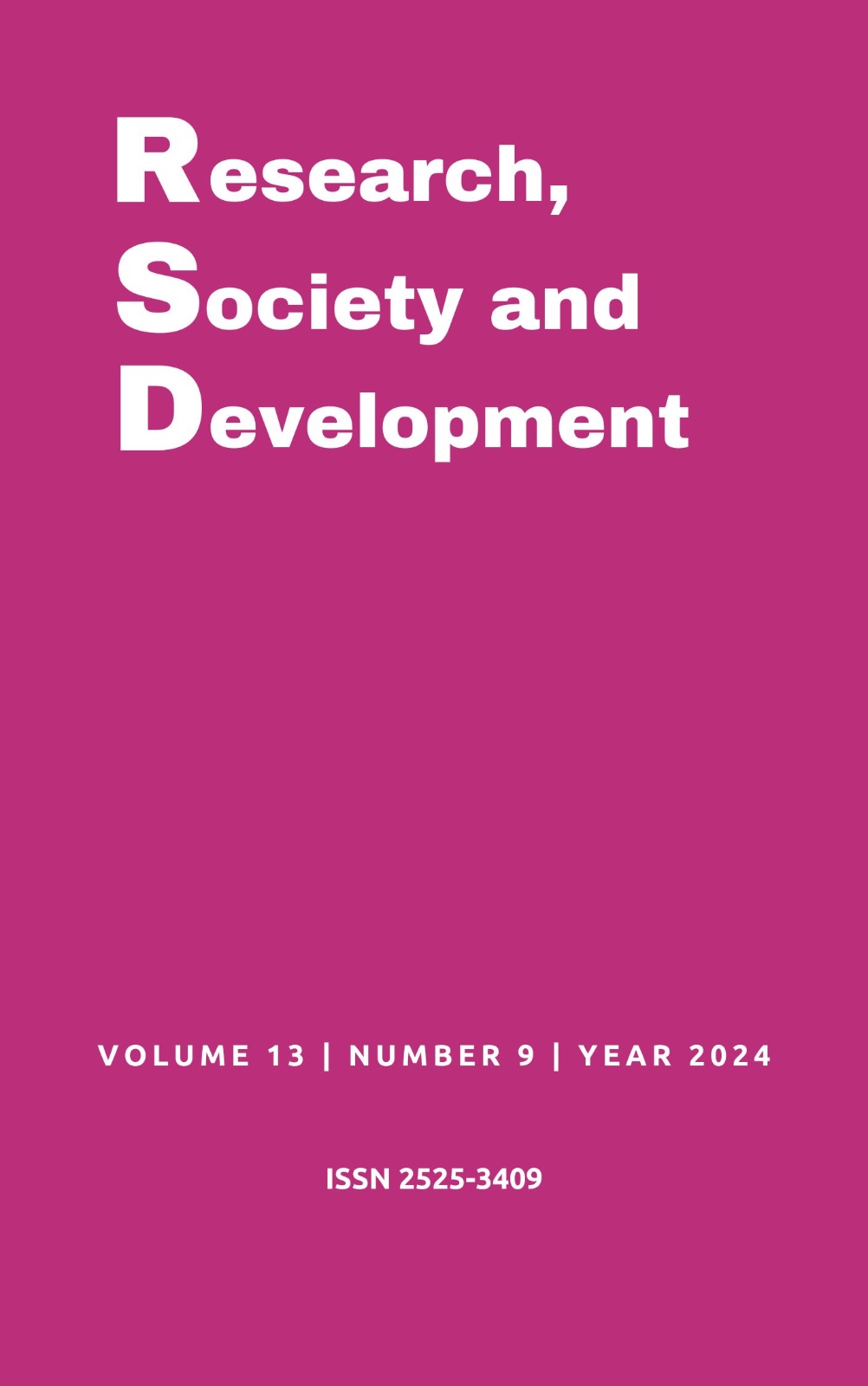Efficacy of cognitive-behavioral therapies in the treatment of post-traumatic stress disorder: A literature review
DOI:
https://doi.org/10.33448/rsd-v13i9.46944Keywords:
Cognitive-Behavioral Therapies, Post-Traumatic Stress Disorder, Mental Health.Abstract
Post-Traumatic Stress Disorder (PTSD) is a severe psychiatric condition that can develop after exposure to traumatic events such as violence, natural disasters, or severe accidents. Cognitive-Behavioral Therapies (CBT) have been extensively studied and recommended as a first-line treatment for PTSD due to their proven efficacy in symptom reduction. This literature review aims to examine the efficacy of CBT in treating PTSD, focusing on specific modalities such as Prolonged Exposure Therapy (PE), Cognitive Therapy (CT), and Cognitive Processing Therapy (CPT). PE involves gradual and controlled exposure to traumatic stimuli, while CT focuses on cognitive restructuring to alter dysfunctional beliefs related to the trauma. CPT combines elements of exposure and cognitive restructuring, helping patients process traumatic memories and modify negative thoughts. Recent studies indicate that these approaches are effective in reducing PTSD symptoms such as re-experiencing, avoidance, and hypervigilance, and in improving patients' quality of life. However, efficacy may vary depending on individual factors such as trauma severity and comorbidities, and contextual factors such as the treatment environment. These findings highlight the need for personalized treatment and further research to optimize interventions and ensure they are accessible and effective for diverse populations.
References
APA American Psychiatric Association. (2013). Diagnostic and statistical manual of mental disorders (5th ed.).
Beck, J. S. (2020). Cognitive behavior therapy: Basics and beyond (3rd ed.). Guilford Press.
Bisson, J. I., Cosgrove, S., Lewis, C., & Roberts, N. P. (2018). Post-traumatic stress disorder. BMJ, 376, k2057.
Bisson, J. I., Roberts, N. P., Andrew, M., Cooper, R., & Lewis, C. (2013). Psychological therapies for chronic post-traumatic stress disorder (PTSD) in adults. Cochrane Database of Systematic Reviews, (12).
Chard, K. M. (2019). Cognitive processing therapy for PTSD: A comprehensive manual. Guilford Press.
Cusack, K., Jonas, D. E., Forneris, C. A., Wines, C., Sonis, J. H., Middleton, J. C., ... & Gaynes, B. N. (2016). Psychological treatments for adults with posttraumatic stress disorder: A systematic review and meta-analysis. Clinical Psychology Review, 43, 128-141.
Ehlers, A., Hackmann, A., Grey, N., Wild, J., Liness, S., Albert, I., ... & Clark, D. M. (2014). A randomized controlled trial of 7-day intensive and standard weekly cognitive therapy for PTSD and emotion-focused supportive therapy. The Lancet Psychiatry, 1(4), 305-314.
Foa, E. B., Hembree, E. A., & Rothbaum, B. O. (2018). Prolonged exposure therapy for PTSD: Emotional processing of traumatic experiences (2nd ed.). Oxford University Press.
Kar, N. (2019). Cognitive behavioral therapy for the treatment of post-traumatic stress disorder: A review. Neuropsychiatric Disease and Treatment, 15, 1723-1735.
Kessler, R. C., Petukhova, M., Sampson, N. A., Zaslavsky, A. M., & Wittchen, H. U. (2017). Twelve-month and lifetime prevalence and lifetime morbid risk of anxiety and mood disorders in the United States. International Journal of Methods in Psychiatric Research, 21(3), 169-184.
Kline, A. C., Cooper, A. A., Rytwinski, N. K., & Feeny, N. C. (2018). Long-term efficacy of psychotherapy for posttraumatic stress disorder: A meta-analysis of randomized controlled trials. Clinical Psychology Review, 59, 30-40.
Lee, D. J., Schnitzlein, C. W., Wolf, J. P., Vythilingam, M., Rasmusson, A. M., & Hoge, C. W. (2016). Psychotherapy versus pharmacotherapy for posttraumatic stress disorder: Systematic review and meta-analyses to determine first-line treatments. Depression and Anxiety, 33(9), 792-806.
Lewis, C., Roberts, N. P., Andrew, M., Starling, E. J., & Bisson, J. I. (2020). Psychological therapies for post-traumatic stress disorder in adults: Systematic review and meta-analysis. European Journal of Psychotraumatology, 11 (1), 1729633.
Monson, C. M., & Shnaider, P. (2018). Cognitive-behavioral conjoint therapy for PTSD: Harnessing the healing power of relationships. Guilford Press.
Powers, M. B., Halpern, J. M., Ferenschak, M. P., Gillihan, S. J., & Foa, E. B. (2019). A meta-analytic review of prolonged exposure for posttraumatic stress disorder. Clinical Psychology Review, 29 (6), 635-641.
Resick, P. A., Monson, C. M., & Chard, K. M. (2017). Cognitive processing therapy for PTSD: A comprehensive manual. Guilford Press.
Schnurr, P. P., & Lunney, C. A. (2016). Work-related outcomes among female veterans and service members after treatment of posttraumatic stress disorder. Psychiatric Services, 67 (12), 1372-1375.
Steenkamp, M. M., Litz, B. T., Hoge, C. W., & Marmar, C. R. (2015). Psychotherapy for military-related PTSD: A review of randomized clinical trials. JAMA, 314(5), 489-500.
Wangelin, B. C., & Tuerk, P. W. (2015). PTSD in active duty military personnel: Prevalence rates and predictors of symptom severity. Journal of Anxiety Disorders, 30, 1-7.
Watts, B. V., Schnurr, P. P., Mayo, L., Young-Xu, Y., Weeks, W. B., & Friedman, M. J. (2019). Meta-analysis of the efficacy of treatments for posttraumatic stress disorder. Journal of Clinical Psychiatry, 74 (6), e541-e550
Downloads
Published
Issue
Section
License
Copyright (c) 2024 João Victor Alves de Aragão; Mário Jorge Souza Cruz; Bianca Cardoso Oliveira; Júlia da Cunha Pereira de Souza; Rodrigo Vitorino Gonçalves; Maria Eduarda Carvalho Nogueira da Gama; Gabriela Carvalho Del’Arco; Carlos Eduardo Pinheiro Leal Brigido; Ana Clara Guerra Silva; Lanna Luiza Ferreira da Cruz; Henrique Souza Costa; Alexia Hannesch

This work is licensed under a Creative Commons Attribution 4.0 International License.
Authors who publish with this journal agree to the following terms:
1) Authors retain copyright and grant the journal right of first publication with the work simultaneously licensed under a Creative Commons Attribution License that allows others to share the work with an acknowledgement of the work's authorship and initial publication in this journal.
2) Authors are able to enter into separate, additional contractual arrangements for the non-exclusive distribution of the journal's published version of the work (e.g., post it to an institutional repository or publish it in a book), with an acknowledgement of its initial publication in this journal.
3) Authors are permitted and encouraged to post their work online (e.g., in institutional repositories or on their website) prior to and during the submission process, as it can lead to productive exchanges, as well as earlier and greater citation of published work.


